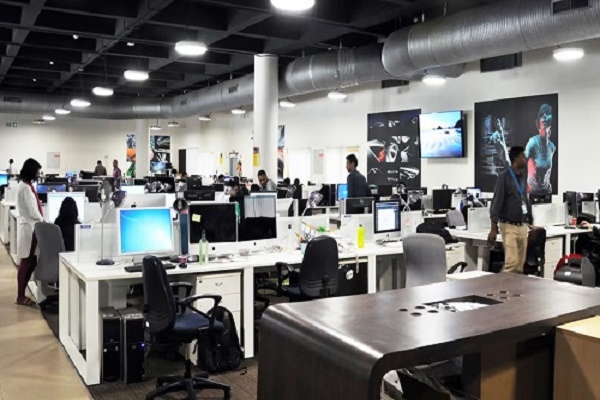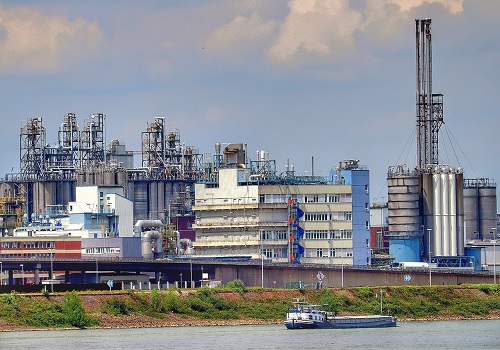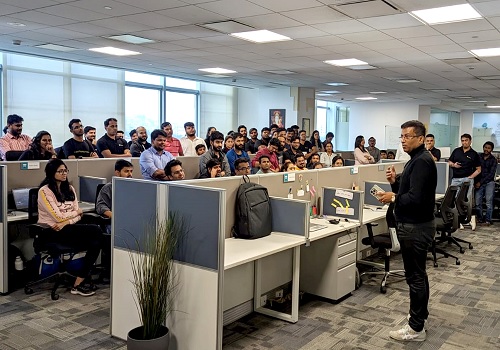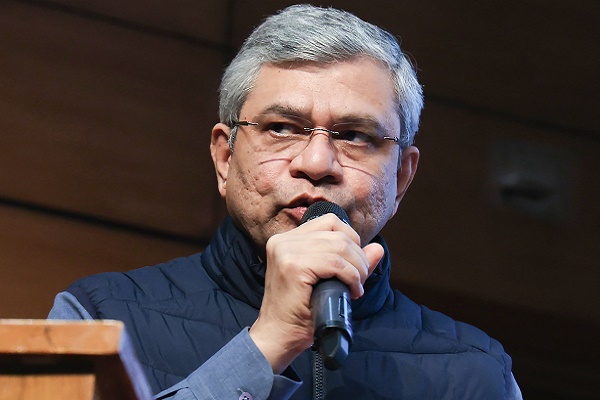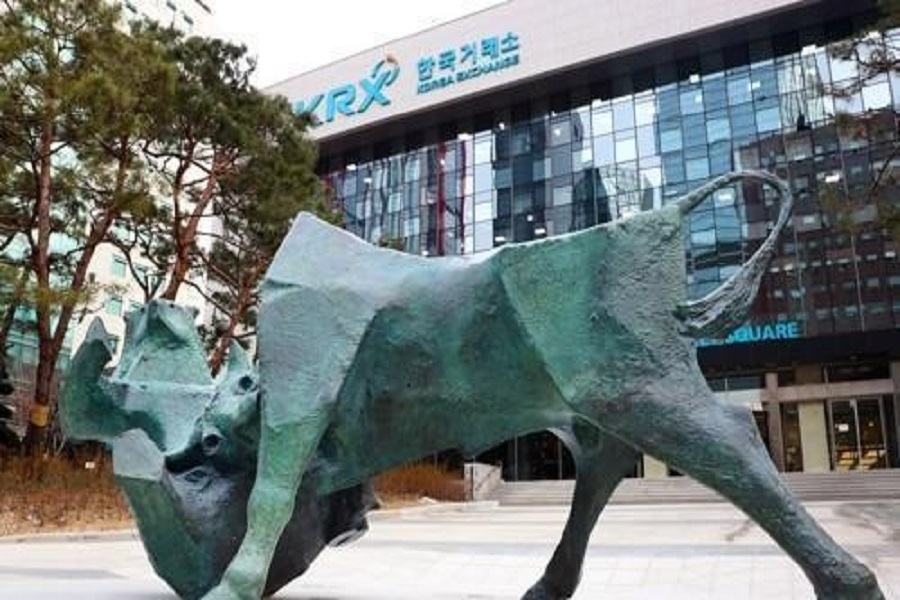Interarch Building Products coming with IPO to raise Rs 612.29 crore

Interarch Building Products
- Interarch Building Products is coming out with a 100% book building; initial public offering (IPO) of 68,03,184 shares of Rs 10 each in a price band Rs 850-900 per equity share.
- Not more than 50% of the issue will be allocated to Qualified Institutional Buyers (QIBs), including 5% to the mutual funds. Further, not less than 15% of the issue will be available for the non-institutional bidders and the remaining 35% for the retail investors.
- The issue will open for subscription on August 19, 2024 and will close on August 21, 2024.
- The shares will be listed on BSE as well as NSE.
- The face value of the share is Rs 10 and is priced 85.00 times of its face value on the lower side and 90.00 times on the higher side.
- Book running lead managers to the issue are Ambit and Axis Capital.
- Compliance Officer for the issue is Nidhi Goel.
Profile of the company
The company is one of the leading turnkey pre-engineered steel construction solution providers in India with integrated facilities for design and engineering, manufacturing, on-site project management capabilities for the installation and erection of pre-engineered steel buildings (PEB). It was ranked third in terms of operating revenue from PEB business in the Financial Year 2023 among integrated PEB players in India. It has delivered PEBs for projects ranging from multi-level warehouses for customers engaged in e-commerce to paint production lines for customers engaged in manufacturing of paints and, fast-moving consumer goods (FMCG) sector for setting up manufacturing units for manufacturing their products. It has also supplied large-span PEBs for indoor stadiums and customers engaged in the cement industry.
The company offer its PEBs by way of: (a) pre-engineered steel building contracts (PEB Contracts), wherein it provides complete PEBs on a turn-key basis to its customers, and as a part of which, it also provides on-site project management expertise for the installation and erection of PEBs supplied by it at its customers’ sites; and (b) sale of pre-engineered steel building materials (PEB Sales), which includes (i) sale of metal ceilings and corrugated roofing (comprising metal suspended ceiling systems (under the brand, TRAC), metal roofing and cladding systems (under the brand, TRACDEK) and permanent/metal decking (lost shuttering) over steel framing (under the brand, TRACDEK Bold-Rib)); (ii) supply of PEB steel structures (comprising, amongst other things, primary and secondary framing systems; as well as complete PEBs, such as non-industrial PEB buildings for non-industrial use, such as farmhouses and residential buildings (under the brand, Interarch Life)) for erection and installation by third party builders/erectors, and (iii) light gauge framing systems (LGFS).
The company primarily manufacture its products in-house at its four manufacturing facilities, comprising two Manufacturing Facilities in Sriperumbudur, Tamil Nadu, India (Tamil Nadu Manufacturing Facility I and Tamil Nadu Manufacturing Facility II), and one each in Pantnagar, Uttarakhand, India (Pantnagar Manufacturing Facility), and Kichha, Uttarakhand, India (Kichha Manufacturing Facility).
Proceed is being used for:
- Financing the capital expenditure towards setting up a new PEB manufacturing unit (classified as Phase 2 of its capacity development plan at the Planned Andhra Pradesh Manufacturing Facility) (Project).
- Financing the capital expenditure towards upgradation of the Kichha Manufacturing Facility, Tamil Nadu Manufacturing Facility I, Tamil Nadu Manufacturing Facility II and Pantnagar Manufacturing Facility.
- Funding investment in information technology (IT) assets for upgradation of existing information technology infrastructure of the company.
- Funding incremental working capital requirements.
- General corporate purposes.
Industry overview
Finished steel consumption grew from 91 million tonne (MT) in Financial Year 2018 to 136 MT in Financial Year 2024 owing to strong demand from allied sectors and the government's capital spending drive. However, demand had declined in Financial Year 2021 to 95 MT from 100 MT in Financial Year 2020 following the onset of the pandemic. The government's initiatives, such as Make in India, Smart Cities Mission, Production Linked Incentive (PLI) and Pradhan Mantri Awas Yojana, have supported steel demand during the period. However, India has considerable scope to enhance steel usage across various sectors. As of calendar year 2023, the country’s annual per capita apparent steel consumption was 93 kg per annum vs. the world’s average of 219 kg. India’s consumption of finished steel products accounted for 7.6% of global consumption in calendar year 2023, up from 4.8% in calendar year 2013. On the other hand, the share of the European Union, Japan and North America in global finished steel product consumption decreased in calendar year 2023 over calendar year 2012. However, India still trails China, which accounted for 50.8% of finished steel product consumption in calendar year 2023 vs 48% in calendar year 2013, suggesting scope for improvement.
Foreign Direct Investment (FDI) plays an important role in propelling India's economic growth and development, particularly in the construction sector. Currently, key construction (development) projects, including townships, residential and commercial premises, roads, bridges, hotels, hospitals, educational institutions, recreational facilities, and city and regional-level infrastructure are open to 100% FDI through the automatic route. Moreover, FDI limits for real estate projects within Special Economic Zones (SEZ) and industrial parks have been raised to 100% in the construction sector through the automatic route. In the construction (infrastructure) sector, FDI stood at Rs 351 billion in Financial Year 2024, compared to Rs 176 billion in Financial Year 2018. The aggregate budgetary support for capital expenditures (including capital outlay, grants for capital creation, and internal and external budgetary resources) has received a significant boost in Financial Year 2024, reaching Rs 18.6 trillion. This marks a substantial 28% increase compared with the estimates of the Financial Year 2023E. The share of 11 core infrastructure ministries (road transport and highways, housing and urban affairs, civil aviation, power, railways, shipping, rural development, water resources, new and renewable energy, defence and petroleum and natural gas) accounts for nearly 60% of the overall capex. The aggregate budgetary support for capex for these ministries is up 19% at Rs 10.9 trillion in the Financial Year 2024 budget.
Pros and strengths
Market position and established brand presence in the growing pre-engineered steel building industry in India: The company was ranked third in terms of operating revenue from PEB business in the Financial Year 2024 among integrated PEB players in India. The company further had the second largest aggregate installed capacity of 141,000 MTPA as at March 31, 2024 and a market share of 6.5% in terms of operating income in Financial Year 2024 among integrated PEB players in India. The company has eight sales and marketing offices in eight cities to cater to its customers across India. In addition to this, it has stationed sales and marketing employees in Chandigarh in Punjab and Haryana, Lucknow in Uttar Pradesh, Coimbatore in Tamil Nadu, Bhubaneshwar in Odisha, and Raipur in Chhattisgarh. During the period from Financial Year 2015 to Financial Year 2024 it completed execution of 677 PEB Contracts, thereby demonstrating its extensive track record in the PEB industry. It was incorporated in 1983 and has presence of over 30 years in the PEB industry under its brands, TRAC and TRACDEK, which it has leveraged to evolve into an end-to-end PEB solution provider and establish a track record based on extensive customer insights developed over the course of its operations, thereby enabling it to acquire new customers and cover various customer industries end-use applications for its PEBs.
Significantly integrated manufacturing operations: The company’s manufacturing operations are vertically integrated to a significant extent, enabling its presence across the product lifecycle of PEBs, from estimation, designing, engineering, and fabrication of PEBs in completely knockdown condition at its Manufacturing Facilities, to supply and on-site project management of the installation and erection of PEBs at the site of the customer. It primarily manufactures its PEBs at four Manufacturing Facilities– two in Uttarakhand, India and two in Sriperumbudur, Tamil Nadu, India, providing it with manufacturing presence in Northern India and Southern India, respectively. As on March 31, 2024, the aggregate installed capacity of its four Manufacturing Facilities was 141,000 MTPA. Its Manufacturing Facilities are equipped with tooling, testing and quality control equipment, and conform to and apply international standards of quality management systems. Its Manufacturing Facilities are each accredited as ISO 9001:2015 certified in Quality Management System (for the scope of design, marketing, project management and manufacture of PEBs, infrastructure steel solutions, metal roofing, wall cladding and suspended metal ceilings).
Demonstrated track record of execution backed by on-site project management capabilities: Project management expertise is a pivotal factor in the evaluation of PEB suppliers as the construction industry is usually characterized by time-consuming projects. It relies on its in-house project supervision, on-site project management capabilities for the erection and installation of PEBs supplied by it at its customers’ sites to gain a competitive advantage in terms of quality, cost and delivery parameters. Project management expertise becomes extremely important to ensure timely completion and avoid costs overrun and helps with adherence to timelines, budget constraints, and maintaining high-quality standards. Since the commencement of its PEB Contracts business, it has developed its project management capabilities, which enable it to offer PEBs on a turn-key basis to its customers, and accordingly contributes significantly to its ability to acquire new customers. Additionally, each of its Manufacturing Facilities have dedicated quality control teams performing various quality assurance activities from inspecting the raw materials to dispatch of its products to the customers, and it also has established dedicated safety and quality control teams to oversee each stage of the erection process.
Diverse customer base and long-standing relationships with significant customers: The PEB market in India can be divided into three broad end-use sectors: (i) industrial/ manufacturing construction, (ii) infrastructure, and (iii) building (residential, commercial and non-commercial). Industrial/manufacturing construction includes manufacturing plants, factories, power plants, and other highly specialized facilities. Infrastructure construction includes warehouses, bridges, dams, roads, airports, canals, etc., and building construction includes constructing buildings for residential uses such as houses, residential towers, etc., as well as non-commercial buildings like hospitals, educational institutions, as well as buildings for commercial use such as offices, retail malls, etc. It has established long-standing relationships with a number of its customers, including various Customer Groups, which it attributes in part to its emphasis on quality consciousness, cost efficiency, and timely execution. The company attribute its long-standing relationships with its customers in part to its emphasis on quality consciousness, cost efficiency, and timely execution. Considering the critical nature of the use cases of its PEBs, its customer standards, requirements and required service levels are stringent, and accordingly, it considers the quality, durability and reliability of its PEBs as essential to maintaining customer relationships.
Risks and concerns
Depend on limited number of third party suppliers: The company depends on a limited number of third-party suppliers for supply of raw materials required in its production process which subjects it to concentration risk. It does not have continuing arrangements for the supply of raw materials and rely on purchase orders which set out the terms and conditions in relation to quantity, pricing, scheduling and delivery details. Steel is its key raw material and finding readymade substitute suppliers for supplying the raw materials, including steel, of exact specifications and on terms and conditions acceptable to it may be difficult. Its purchase orders typically do not contain any provision for indemnification against any losses suffered by it or any resource for it in case of delay of supply. If any of these suppliers cease operations or decide to discontinue its supply relationship, or fails to supply within the stipulated framework, it would need to find alternative suppliers, within a requisite span of time. It may be unable to source its raw materials from alternative suppliers on similar commercial terms and within a reasonable timeframe. Loss of any one or more of its suppliers may adversely impact its production and eventually its business, results of operations, financial condition and cash flows.
Do not have any long-term or continuing agreements with customer: The company does not have any long-term or continuing agreements with its customers or customer groups and rely on purchase orders issued by its customers from time to time, that set out the terms of its PEB Contracts or PEB Sales for each order. Further, certain purchase orders also permit its customers or customer groups to unilaterally terminate such orders, with or without cause and if such cancellation takes place, it may have an adverse impact on its business, results of operations, financial condition and cash flows. Its pricing terms, payment cycles and permitted adjustments are generally set out in advance in its purchase orders. Majority of its purchase orders do not provide for price escalation provisions and are fixed rate contracts and it may not be able to renegotiate/reset prices set out, in the event of significant unanticipated changes in, for instance, currency exchange rate fluctuation or fluctuations in the price of raw materials. Due to committed delivery schedules at a pre-agreed price, it may not be able to adequately adjust its inventory and raw material costs in the event of an unanticipated change or cancellation in orders from its customers and it may, therefore, in certain events, incur additional costs that it is unable to pass through to its customers or be required to write off certain expenses.
Depend on PEB Contracts for significant portion of revenues: The company derives a significant portion of its revenue from operations from contracts with customers for supplying PEBs on a turn-key basis, as a part of which, it also provides onsite project management for the erection and installation of its PEBs. Any loss or significant reduction in its revenue from the provision of PEB Contracts for any reason (including due to loss of, or termination of existing arrangements, limitation to meet any change in quality specification, customization requirements, or change in construction technology, disputes with a customer, adverse changes in the financial condition of its customers, such as possible bankruptcy or liquidation or other financial hardship) could have a material adverse effect on its business, results of operations, financial condition and cash flows. Onsite project management capabilities is a pivotal factor in the evaluation of pre-engineered steel building suppliers as construction industry is usually riddled by long projects. Hence, project management expertise becomes extremely important to ensure timely completion and avoid costs overrun as it helps in the adherence to timelines, budget constraints, and high-quality standards.
Dependent on contract labourers: The company engages a large number of contract labourers depending on the requirements of labour-intensive projects particularly in its Manufacturing Facilities and at the time of assembling and erection of the PEBs at the site of its customers. The number of contract labours vary from time to time based on the nature and extent of work involved in on-going projects. These contract labours are engaged through independent contractors in accordance with the provisions of the Contract Labour (Regulation and Abolition) Act, 1970. The broad profile of its contract labourers includes welding and fitting, loading and unloading, sweeping and cleaning, supply of food in its canteen at Manufacturing Facilities and supply of security personnel. Further, its independent contractors primarily supply contract labourers required by the company for various functions at Manufacturing Facilities such as wielding, fitting, loading and unloading, sweeping and cleaning, supply of food in canteens and supply of security personnels
Outlook
Incorporated in 1983, Interarch Building Products provides turnkey pre-engineered steel construction solutions in India. The company offers integrated facilities for design, engineering, manufacturing, and on-site project management for the installation and erection of pre-engineered steel buildings (PEB). The company offers PEBs through pre-engineered steel building contracts (PEB Contracts) and the sale of pre-engineered steel building materials (PEB Sales), including metal ceilings, corrugated roofing, PEB steel structures, and light gauge framing systems. It has established long-standing relationships with a number of its customers, including various Customer Groups, which it attributes in part to its emphasis on quality consciousness, cost efficiency, and timely execution. It is supported by its dedicated in-house on-site project management team. It has established eight sales and marketing offices in eight cities to cater to its customers across India. On the concern side, the company may face the risk of its building/ erection contractors not being able to deliver their obligations on time or default in their delivery timelines. In the event it is unable to find an alternative building/erection contractor on a short notice, its obligations towards its customers for timely completion of the orders will be adversely affected. Besides, its business requires significant working capital in order to finance the purchase of raw materials and maintaining inventory, furnishing of Bank Guarantees.
The company is coming out with a maiden IPO of 68,03,184 equity shares of Rs 10 each. The issue has been offered in a price band of Rs 850-900 per equity share. The aggregate size of the offer is around Rs 578.27 crore to Rs 612.29 crore based on lower and upper price band respectively. On performance front, the company’s total income increased by 14.95% to Rs 13,063.15 million for the Financial Year 2024 from Rs 11,363.92 million for the Financial Year 2023. The company reported a restated profit for the year of Rs 862.62 million for the Financial Year 2024 as compared to a reported restated profit for the year of Rs 814.63 million for the Financial Year 2023. Meanwhile, the company intends to continue to invest in its technology infrastructure to enable further innovation, improve its operational efficiencies, increase customer satisfaction and improve its sales and profitability. It also intends to enhance its design and engineering capabilities which provide it with a competitive advantage with respect to quality, product development and cost, as well as to explore sustainable cost improvement initiatives for its operations. In addition, it will focus on its operational efficiency to improve returns.
Brace Port Logistics coming with IPO to raise Rs 24.41 crore
Aug-14-2024 12:47 Hrs IST
Brace Port Logistics
- Brace Port Logistics is coming out with initial public offering (IPO) of 30,51,200 shares in a price band Rs 76-80 per equity share.
- The issue will open for subscription on August 19, 2024 and will close on August 21, 2024.
- The shares will be listed on NSE Emerge Platform.
- The face value of the share is Rs 10 and is priced 7.6 times of its face value on the lower side and 8 times on the higher side.
- Book running lead manager to the issue is Holani Consultants.
- Compliance Officer for the issue is Megha Verma.
Profile of the company
The company is a service-based logistics company primarily engaged in the business of providing Ocean cargo logistics services to its clients operating in the various sectors of the economy. It also provides various value-added services like Air Freight, Warehousing facilities, special cargo services such as handling cargo in foreign country and delivery the same in other foreign country and custom clearance services. The company along with its group companies and holding company has an extensive network across the globe. It provides its services at a worldwide level where it caters for clients across the globe and even provides cross-border shipment facilities as well.
Its team comprises of trained and experienced professionals and has had the rich industry expertise of its promoters for more than two decades. Its holding company is leading player in air cargo industry in India. It aims is to provide highly optimized and customized supply chain solutions to its customers with unified technology systems.
It has a strong pan-India and global network to meet the needs of its customers across a wide range of industries including medical supplies and pharma, sports goods, perishables, electronics, consumer durables and automotive etc. Its experienced team can handle all logistics movements using advanced systems and processes to overcome any challenges. It is flexible in its approach to managing the supply chains effectively, along with the identification of the best routes to move shipments and at best pricing options.
Proceed is being used for:
- Funding the working capital requirements of the company
- General corporate purposes
Industry Overview
The logistics industry is essential for the economy of a country. It pertains to the general method of controlling how resources are obtained, housed and delivered to their ultimate location. It is a differentiating sector that can largely affect any country’s exports, thereby adding a significant competitive edge, with the underlying assumption of a robust logistics sector. The logistics industry comprises all supply chain activities, mainly transportation, inventory management, flow of information and customer service. It determines the success of not only the country’s supply chain but also influences it on a global scale.
While India is a very small market in global express industry with less than 2% of the global market size, India has one of the fastest growing express industry. The Indian express industry started in very unorganized way few centuries ago, where traders used to send urgent and high value cargo to destination by ‘Angadia’ i.e., someone who carriers the high value cargo with him in person. The first organized player to start its operation in India was Government of India itself. Government launched Speed Post in 1980. Subsequently, in 1980s, few international express companies entered the Indian market in joint venture with Indian companies. DHL started operation in India in the year 1979 to help make exports easier for SMEs. Whereas, FedEx started its operation in 1984 in India. TNT had started its services much later in 2006. UPS entered India in the year 2001 with its acquisition of Fritz Inc in 2001.
Indian Express Industry has come a long way in last four decades and evolved in terms of product offering & service quality. In the last decade segments like e?commerce and on demand logistics have changed the complete paradigm of the sector. Outlook of the sector is very positive and CAGR is expected to be more than 15% in next decade. By year 2025 its market size is estimated to be around $10 billion. In future, digitization and automation will be prerequisite of express business. Technology will not remain as enabler, instead it will be driving processes, efficiency & optimization. Whole range of new technologies from data analytics to automation to quantum computing and 3D printing will be instrumental in growth.
Pros and strengths
Long lasting business relationships: It focuses on building sustained and long-term client relationships with its clients and constantly tries to cater their needs with services in demand. It has a strong history of working with globally renowned companies. It generates a majority of its revenue from the repetitive business provided by its clients, which is a testament to its endeavor to establish and maintaining long-lasting relationships with all of its clients.
Comprehensive Solutions for transportation requirements: It provides comprehensive third-party logistics services through transportation and warehousing at competitive rates. It provides end to end customize logistics solutions for its customers. Its logistic offerings like cross-border freight transportation and other value-added services allows its customers with cross selling opportunities.
Diverse customer base across many sectors: Its customer base spans across many sectors including retail and consumer goods, Healthcare, Manufacturing, Automotive, Food and Beverages, Energy and Utilities etc. It has a diversified customer base in each of these sectors. It serves including Indian Corporate Groups and Multi-National Corporations. It is well positioned in the logistics industry in India, given its diverse services it provides which suited to serve a wide range of sectors. Over the years it has built strong customer relations by demonstrating the value propositions which position it for expected further growth.
Risks and concerns
Depend on certain key customers: It depends on a limited number of customers, which exposes it to a high risk of customer concentration. Fluctuations in the performance of the industries in which certain of its customers operate may result in a loss of customers, a decrease in the volume of work it undertakes or the price at which it offers its services. It cannot assures that it shall generate the same quantum of business, or any business at all, from these customers, and loss of business from one or more of them may adversely affect its revenues and profitability.
Does not have Custom House Agent (CHA) license: Its main business is providing logistics services to companies operating in the various sectors of the economy. The company also provides various value-added services like Air Freight, Marine Freight, and warehousing facilities. It does not have any CHA license in its name which is used for entry or departure of a conveyance or the import or export of goods at any Customs Station as there are various third-party license holders who can do the job on fixed price basis. It relies on third parties for CHA services. Any delay in the service by CHA Agency may affect delivery of its goods and it may have to compensate its customers for the loss if any. Any such event may affect its result of operations and future prospects.
Depend upon third parties to provide services: Being a third-party logistics provider, it does not own or control the transportation assets that deliver its customers’ cargo and it does not employ the people directly involved in delivering the cargo. It is dependent it independent third parties to provide freight services (truck, rail, ocean and air) and to report certain events to it including delivery information and freight claims. This reliance could cause delays in reporting certain events, including recognizing revenue and claims. It depends upon third parties to provide services which may result in delays in delivering the cargo/service on time, which in turn may lead to customer dissatisfaction and loss of further business.
Outlook
Brace Port Logistics is a service-based logistics company primarily engaged in the business of providing Ocean cargo logistics services to its clients operating in the various sectors of the economy. It also provides various value-added services like Air Freight, Warehousing facilities, special cargo services such as handling cargo in foreign country and delivery the same in other foreign country and custom clearance services. On the concern side, the logistics market is very competitive. There are many bigger groups operating in the industry and they compete with each other on key attributes such as technical competence, quality of services, customer base, pricing and timely delivery. These bigger groups are far ahead in terms of technical know-how, capital adequacy, availability of financial resources, skilled labour and better industry experience. Increasing competition may result in a decline in its market share and may affect its profit margins which may adversely affect its business operations and its financial conditions.
The company is coming out with a maiden IPO of 30,51,200 equity shares of Rs 10 each. The issue has been offered in a price band of Rs 76-80 per equity share. The aggregate size of the offer is around Rs 23.19 crore to Rs 24.41 crore based on lower and upper price band respectively. On performance front, revenue from services has decreased by 21.93% to Rs 5,500.43 lakh in fiscal year ended March 31, 2024 from 7,045.35 lakh in fiscal year ended March 31, 2023. Profit after tax has decreased by 20.86% from Rs 618.09 lakh in the fiscal year ended March 31, 2023 to Rs 489.13 lakh in the fiscal year ended March 31, 2024. Meanwhile, it intends to cater to the increasing demand of its existing customers by increasing the offices across the globe to increase the reach of its services. Enhancing its presence in additional regions will enable it to reach out to a larger market. Its strong presence in domestic and international markets will help it to capitalize on the potential market in the logistics industry and to curb the cost of hiring third party agents it hires in other countries, which results in high profit margins for the company.


